|
When disease of any kind hits a family like a carelessly flung grenade, your initial response is, “this can't be happening,” then it's, “okay, this is happening but how do we get out of it?” My husband, Randy, and I fought with every tool we could find but nothing was working and days turned into weeks, weeks into months and when months have now turned into years a stark reality sets in regarding the situation. Long term illness is the draining of all resources, not just once, but everyday!
You never want to be on a losing team. You don’t want to be identified with failure. You don't want to be grouped with the 'have been married' because you are still married...married but alone. There is an old Three Dog Night song from years ago, entitled with this impressive, unequivocal name, “One.” These are simple lyrics, that give a diminutive perspective on this aloneness dilemma. One is the loneliest number that you'll ever do Two can be as bad as one It's the loneliest number since the number one..... Trying to adjust to one when you have been part of two for many years, as in my case 46 years, is an exercise in futility. Your thinking has morphed through the years and you realize there is a unit of two that has developed with varying opinions, strategies, abilities etc....all intertwining to bring identity to your life as part of a 'couple.' Your life as 'a couple' is now only a memory as I rehearse yet another simple line from the above mentioned song; Now I spend my time just making rhymes of yesterday. It's a couples world out there and no matter how many times friends and family want and attempt to include you in their own couples world, it is uncomfortable at the least and down right depressing at the worst....and it's no one’s fault! And that, my friends, is maddening, I so want to BLAME someone or something, hoping that by placing blame I might get a little relief from the constant nagging question that pounds in my head, “why?” With no answer to that question in sight, I must lay it aside and continue to live and take care of my husband until the final chapter is written. I am not the author of that chapter. If I did not personally trust in God as the Divine Director of my life I would be without hope...but I am not! Three thoughts:
The friend who can be silent with us in a moment of despair or confusion...that is a friend who cares. -Henry Nouwen People don't know what to say. It's not their fault. The thing is, sometimes what we think is empathy is actually turning a conversation about someone else back around to us. Remember those people in school who would always one up you? You excitedly tell your friend about how you got to go to a Major League baseball game the previous night only to have your excitement diminished by your friend explaining to you that he has season tickets. Maybe your friend wasn't trying to be a jerk, but it still effectively turned the conversation from being about you to being about him...we've all done it. The Book of Romans in the Bible says to Rejoice with those who rejoice, weep with those who weep. True love is always outward focused. Let's be honest. Sitting in silence with someone when you hear bad news is awkward, really awkward. We all want to fix each other's problems. It's not just a guy thing. Everyone wants to make whatever it is better. Sometimes you can't. Sometimes you have to sit in the awkward and just be present. I can't say it any better than C.S. Lewis who writes concerning the loss of his wife in A Grief Observed: Part of every misery is, so to speak, the misery's shadow or reflection: the fact that you don't merely suffer but have to keep on thinking about the fact that you suffer. I not only live each endless day in grief, but live each day thinking about living each day in grief... Maybe those of us walking through grief are too emotional and high maintenance sometimes. Yeah, that's probably true. Please give us grace. We try to give you grace too. Sit with us in silence. I know you mean well, but your 95 year old great aunt who forgets things is not my dad. -Chad Bozarth
One of the early challenges with Randy, after being diagnosed with a form of dementia, was the fact that while his brain was fighting a disease, initially his body was as strong and healthy as ever. He still looked strong, tall and handsome. This then added to the confusion of people who 'saw' the old Randy but knew something was terribly amiss if they attempted a conversation. This also added to my stress when out in public with him because no one expected him to do, say, or act out the way he did, explanations were always awkward but needed.
Not recognizing friends and family, and lack of judgment in social settings were only a couple of the symptoms. Soon he began to display some obsessive compulsive behavior. He still wanted to watch his favorite Dallas sports teams so I would make sure I checked the schedule and found it on TV for him. It was a peaceful break for me because I did not have to be on guard duty. He, however, developed a little routine that had to be adhered to each and every time he was sitting in his favorite chair in the family room. He must have three glasses of water and three bowls with snacks in them. It couldn't be two or four glasses or bowls...it had to be three. I always prepared these for him because if I did not he would get into the toothpicks, raw eggs, he even found some broken glass one time, and put these in the bowls for his snacks. The constant monitoring was draining to say the least and I had to eventually resort to putting locks on all of the cupboards and refrigerator. He began to walk around our kitchen table or the backyard pool in circles counting or I should say, trying to count to 100. He also waved at our backyard lighting fixture saying it was somebody and would go out to it during the day and talk to it and sometimes reach up and kiss it. I tried once to question him about it but the agitation it produced was not worth it. I can barely describe the despair and grief that tried to consume me as I watched this strong, healthy, handsome man turn into a childlike image of himself. I missed talking to him about our family, about ministry, and about our plans for the future. He looked the same...but he was not the same! I cried myself to sleep most nights. Three thoughts:
It's hard to describe how things were when my dad first got sick. It was so gradual and strange. We Bozarth guys are kind of eccentric and goofy just by default, so when Dad started doing strange things it was difficult to identify and point my finger on what exactly was going on. It wasn't that he was doing things so outside the scope of normal, it's that, he had no judgment on when to stop doing certain things. Contrary to what alot of his former students may know or think, my dad was always extremely goofy. When he started having symptoms, the symptoms were just a more strange type of goofiness and with each passing day he lost more and more of his judgement and ability to read people and situations...something he was always really great at doing.
Now when he would preach, he would preach way too long and not realize it was time to wrap up. Maybe that's a problem most preachers have, but with dad, it was markedly different. Now he would shake someone's hand and swing it back and forth in a strange way that was almost scary to the person he was shaking hands with. Now he was hiding behind pillars in public places acting like a 5 year old. When people first hear the word Alzheimer's or Dementia they immediately think, "oh, he doesn't remember where his keys are anymore," not a big deal right? No, that characterization couldn't be further from the truth. I can only speak to Dementia and not Alzheimer's in general, but my dad's symptoms were not just simply forgetting little things here and there. His judgement was deteriorating. He thought certain things were OK to do that were not OK. Talk about role reversal and life flipping upside down. My dad used to be the one telling me I was talking too loud. My parents were pastors when I was a kid so I often went out to eat with them and some leader from somewhere. I remember in the car on our way to eat my dad would always tell me to be "calm, cool and collected." Now it was me telling my dad to be "calm, cool and collected," only he was a 6' 4", 235 lbs person who wouldn't always listen to my admonition. I wasn't looking to discipline my dad, just somehow make already awkward situations less awkward and escape somehow. I can't express how much anxiety these situations caused my mom, my family and me. It was especially difficult before we got an official diagnosis, because we really didn't know what was going on. I didn't know what to say to people. Something was obviously wrong, but what could I tell people? I had nothing. I would just blame it on stress, or a mid-life crisis. Who knows what I came up with? Looking back, I have no idea how we made it through some of those days. The picture at the top was taken on our last international mission's trip together in 2008. My dad and I went to Romania to speak at a Pastor's conference. What a stressful trip that was. My dad was acting so strange. I mentioned hiding behind pillars. Well imagine a setting, surrounded by a bunch of Romanian leaders who have come to listen to my dad talk about leadership, and he his acting goofy hiding behind pillars in the lunch room and acting so strange. You may ask me why we let him go on such a trip. We probably shouldn't have, but we still didn't know what was wrong. We thought maybe he was just stressed or something and maybe getting out of the country like he used to do could help him snap out of whatever he was dealing with. Yeah, for awhile there we hoped he would just snap out of it. He never did. -Chad Bozarth Three things I learned that could help you:
A Letter from a GranddaughterFifty-Seven
Dear Papa, Do you remember the time we spent together at your house and you told me every day how much Jesus loves me? You spent every minute of your time reading the bible and preparing your sermon for Sunday. I remember those times. I remember picking up your bible and looking at it as though it was a priceless gem. You taught me the importance of love and faithfulness. You taught me patience and that true beauty is within. I remember how much you loved grandma and showed her love like it was never ending. And yet it seems like it has ended. The last thing you did as yourself was give my dad a new chance at love and married he and my step mom. You loved my step mom as though she was your own daughter and yet the memory of her is lost to Alzheimer’s. The last thing you did was show my family and I your love for us and for God. The last thing you did was pray for us. The last thing you did was show me an amazing grandfather. One that would love me forever and be there for me whenever I needed him. Then you were gone. Only Fifty-seven. What a horrid number. Fifty-seven. The number that tells me when my Papa began to change. The number that tells me all of the memories that I made with my Papa are gone. They are all gone. No more tickle fights or nice family dinners. No more sitting at the table and waiting for Papa to say grace. No more peeking into the spare bedroom to see my Papa studying the word of God. No more seeing the unfailing happiness that my Papa gave to my grandma. No more having Grandma and Papa over for Christmas. Now we receive our gifts through the mail. Papa, you used to be the only one who could make my little sister laugh. Your whiskers brushing her cheek like a wave of giggles as you kissed her. That was the hardest part. When your whiskers replaced giggles with fear. My little sister knew first that something was wrong. That your kisses were not the same and your tickle fights were not as loving. Something was wrong and you could not see it. Your tickles became too harsh and your kisses were painful. My sister was frightened by you and you could not understand why. You could not understand the grief in my Grandma's eyes when she received the news of your disease. You could not understand why you were no longer allowed to drive the car around. You could not understand why you no longer knew the roads that led to your drive way. You could not understand why you could not go out to restaurants anymore. You could not understand why eating M&M's all day was bad for you. You could not understand that everything in the kitchen was not edible. You could not understand why leaving the house by yourself was dangerous. You could not understand why we did not go to church with you on Sundays because you could no longer handle social outings. It was interesting though, Papa, that you may have forgotten who I was; you may have forgotten who your friends were; you may have forgotten your own sons and grandchildren, but at the beginning, you did not forget God. You never forgot to praise God first thing in the morning. You never forgot to sing your praise and worship songs. I would wake up at your house, or at my house when you could still come and visit, and hear you sing at the top of your lungs as your professed your love for Jesus Christ. Each year your Alzheimer's disease progressed and stole more and more of your memories. But Papa, we will never stop loving you. Sixty-Five Dear Papa, Do you remember how to use your fork? Do you remember how to use the bathroom? Do your remember my name? Do you remember who your wife is? Do you know how much God loves you? Do you remember what a dog is? Do you remember how to take a shower? Do you remember what love is? Do you remember what life is? The last thing you did when you knew how to function was ask your wife Susan for help. The last thing you did was eat food by yourself. The last thing you did was stare off into the distance like you lived in another world. That is where you are now papa. You are in another world. A world where everyone around you is just in your way of doing what you want. A world where thinking is a thing of the past. A world where there is no memory, no love, no happiness, no knowledge, no enjoyment, no caring, no function, and no life. Are you stuck in there Papa? Are you stuck in your own body that you do not know how to work anymore? Are you stuck in your brain where nothing goes on? What happened to your soul, your personality, and your love when you lost yourself in this curse? I am out here and you are in there, but are you really in there? Are you still here or have you moved on to another life? This curse they call Alzheimer's has taken over your brain Papa. Did you know that? Of course you did not because you do not truly know anything anymore. My life is not the same with Alzheimer's in my family. I fear now for my Uncle and my Father. What will become of them if they have this disease in their genes just waiting for the opportune moment to show itself? Papa, did you know that you have completely altered the way I must live my life? No longer is living about making memories for myself, but for providing memories for my loved ones because nothing is safe in this world. Not even memories. Do not worry Papa. You may have lost all your memories, but we have kept them all and I will never forget what this awful disease has taught me about myself and some of my closest family members. I have learned that my weaknesses are found in who I love, but my strengths are found in how others love me. Papa, you raised an amazing son to be my father and your Alzheimer's has taught me how strong and loving my father really is. My father has continually stayed strong for my grandma and for my sisters and me even though he has lost his father. Papa, I have also seen the unfailing love you gave to Grandma come out through her to her granddaughters. Grandma has been a steady stream of love and joy to my sisters and me through your struggle with Alzheimer's. Some may think that you are the only one struggling with Alzheimer's, but I have learned that Alzheimer's does not just affect its' prisoner. Alzheimer's hurts everyone who cares for the person who has fallen victim. Papa, when you escape your prison and leave us to spend eternity in heaven with Jesus Christ, we will be here to remember your love, your kindness, and your strength. "Abigail, did you know that Jesus loves you more than you can fathom?" you would say as I walked through the door of your home. "Yes Papa" I would say. You never let me forget God's love for me or your love for me. I hope someday we can be together again, but until then I will remember you for who you really are. -Abigail Bozarth The question in 2006 that changed our path that night, “who are they?” in response to a comment I made about seeing old friends, began a journey that continues today. My immediate thought was to make a doctor's appointment with our family physician believing and hoping we would receive a diagnosis of 'overworked,' 'stressed,' etc. but it was not. The look of concern on the doctor's face spoke volumes to me, although I don't think Randy caught on at all. The doctor suggested that our next step was to make an appointment with a neurologist that he recommending.
I quickly contacted this neurologist and the appointment was set. The day of the appointment was busy like any other day and I just wanted to get in and out with an easy diagnosis of anything that was fixable. We went and sat in the waiting room with a sense of anxiousness and irritation permeating the entire atmosphere. A short meeting with a less than compassionate neurologist ended with a diagnosis of early onset Alzheimer's. He was 57 years old. Funny, I thought, I was hoping she would say it was a tumor or something, anything that could be removed or fixed! We left that office stunned, and angry, “it's a lie,” I said, "that's not what you have." So began a series of personal tests and trials all pointing to the reality that something was definitely wrong. The phone calls were what I initially dreaded the most, “I ran in to Randy today, what's wrong with him?” “Did he have a stroke?” “He's acting funny, using bad judgment etc.,” “Susan, I hate to say this, but something is wrong with Randy.” and on and on and on they came. The more I attempted to tell him that something was wrong and other people were worried too, the angrier he got. I felt trapped and alone. Someone recommended a medical facility specializing in dementia with a research program that I might be able to get Randy into. I made yet another appointment grasping for some hope, help, clarity, or answers...none were coming. The doctor examined Randy and came up with a more detailed diagnosis, Frontotemporal Degeneration; basically, the front, right, part of Randy's brain had begun to atrophy. The reality of what was being said sunk in as I stepped out into the hallway and cried. “What in the world am I going to do?” In no short order they had him signed up for a research program dedicated to this disease. I had a moment of hope but it was quickly dashed when I realized the doctor was viewing Randy more like a lab rat than a human with a debilitating disease...I didn't take him back. The personality changes were acute and worsening day by day. I had to get help. I finally got him to a kind, compassionate, neurologist, that was recommended to me by an acquaintance that was also struggling with her husband and the same diagnosis. This doctor was also involved in research but the difference was notable from the beginning. He looked right at Randy and said, “You are my patient, yes, we will be giving you tests etc. that once the results are in, will help a lot of people, but I will be caring for you.” The lie turned out to be true and we made weekly visits to this office for months of treatment and tests which always included blood work, MRI’s and what seemed like hours of questions and interviews...it was exhausting mentally and physically. These weekly visits continued until he could no longer answer questions like, “Can you name a farm animal?” “How many children or grandchildren do you have?” “Who is the President of the United States?” The research for Randy was over. I was now embarking on the next level of this dreaded disease with the path I had to walk looking like a dark, scary, unfamiliar, route that was taking me into uncharted territory. Knowing the diagnosis did not make the path ahead any clearer. Three things I learned that could help you:
My dad was a pitcher in high school and a pretty good one at that. He even pitched a perfect game one time. Nolan Ryan never even did that. Of course, my dad never made it to the Majors, so maybe they're even. Anyway, when I got old enough, I went straight for the diamond. I was lucky enough to be trained by the best, er, well, the best in close proximity to me. Every kid probably thinks their dad is the best at fixing cars, or whatever, but my dad really was one of the best when it came to pitching. He taught me how to pitch. He taught me how to wind up, how to throw from the stretch, how to throw a curve and the perennially important skill of throwing a strike. He didn't just teach me the logistics of a curve ball or a change-up, but he spent time teaching me the strategy behind when to throw what, when. My dad spent countless hours with me in our backyard, and on the practice field teaching, training, coaching and encouraging me. I was a pretty good little pitcher, but I was young and a little help in the strategy department was always a good idea. I'm not sure if the other parents had any idea what was going on, but when it was game time my dad would stand behind the fence, behind the umpire, and flash pitching signs to me. It was a sight to behold I'm sure, me, the smallest, skinniest kid on the field with my 6ft 4inch dad standing not so inconspicuously sending me the signals. I don't think it was technically cheating, but I'm sure no other dads were doing it. I think it may have embarrassed me sometimes, but I'm sure my dad was oblivious to even the possibility of embarrassment. I was there to pitch and he was going to make sure I knew when to throw my deadly curve. I'm almost 32 now. I don't play baseball anymore, but now I'm smack dab in the middle of the game of life. I had confidence on the mound 'cause my dad was right there with me. I couldn't go wrong. I knew he knew the path and could guide me to victory, because he had been victorious. That's the thing about losing a parent. You can remember the backyard training, but when you actually get out on the mound and look behind the umpire to see what pitch you should throw, there's no one there anymore. I sure hope I can remember when to throw my curve. -Chad Bozarth Bozarth was undefeated in four decisions this season and boasts a perfect game over Wapella... The Pantagraph |
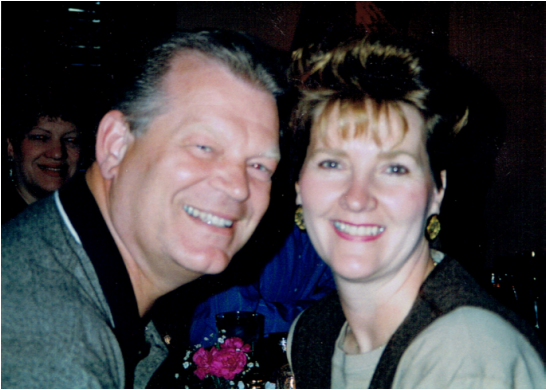
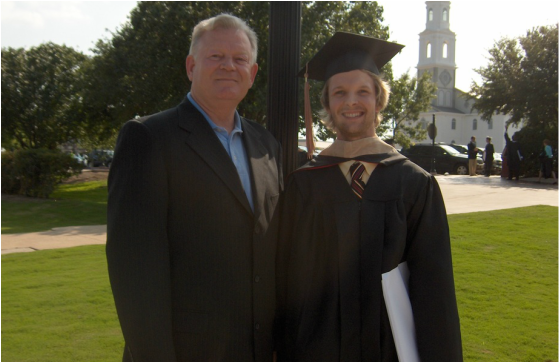
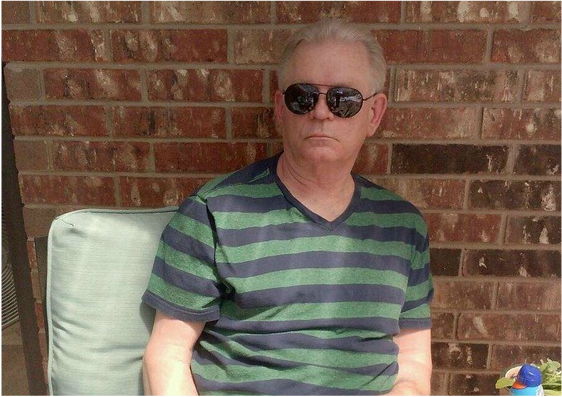
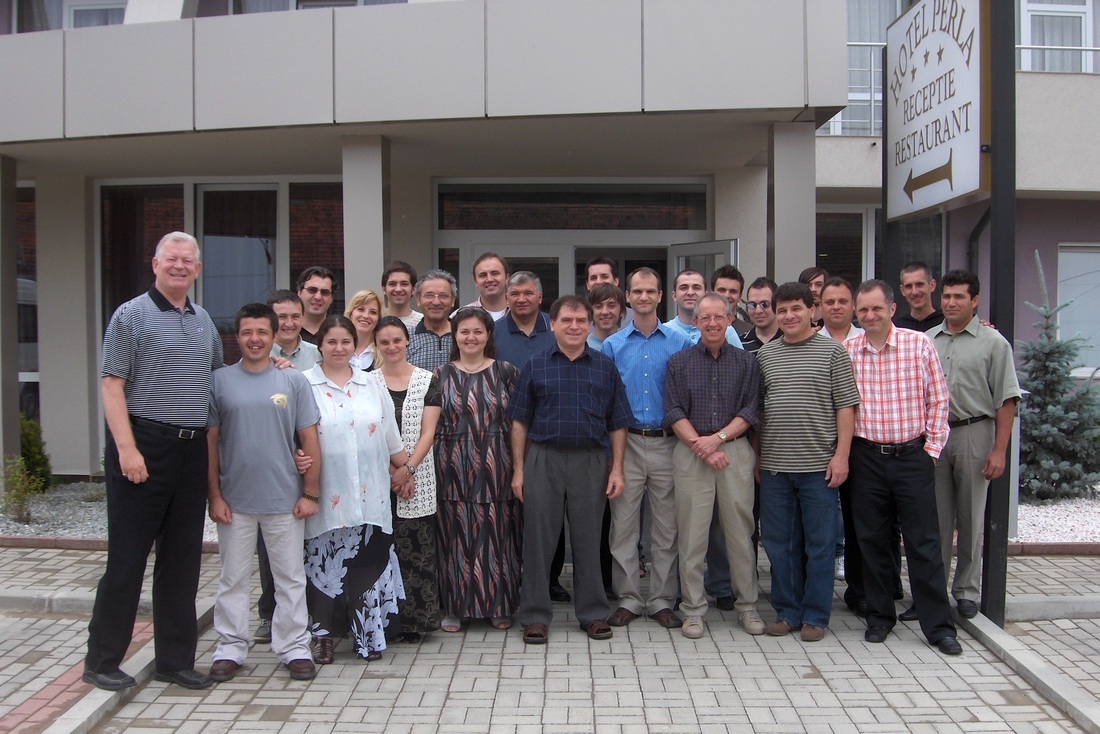
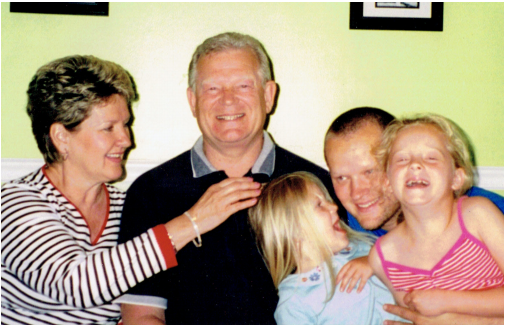
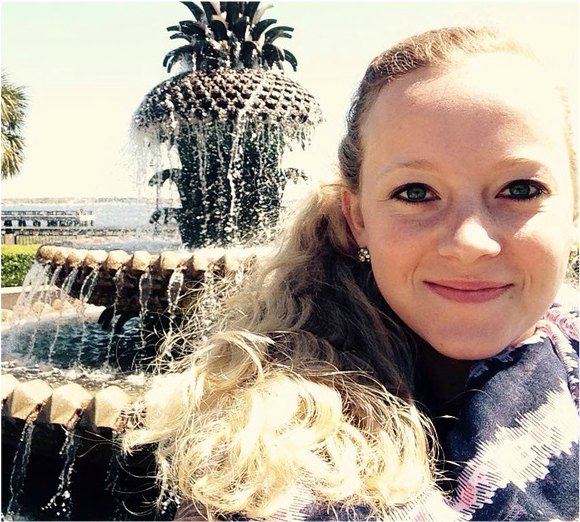
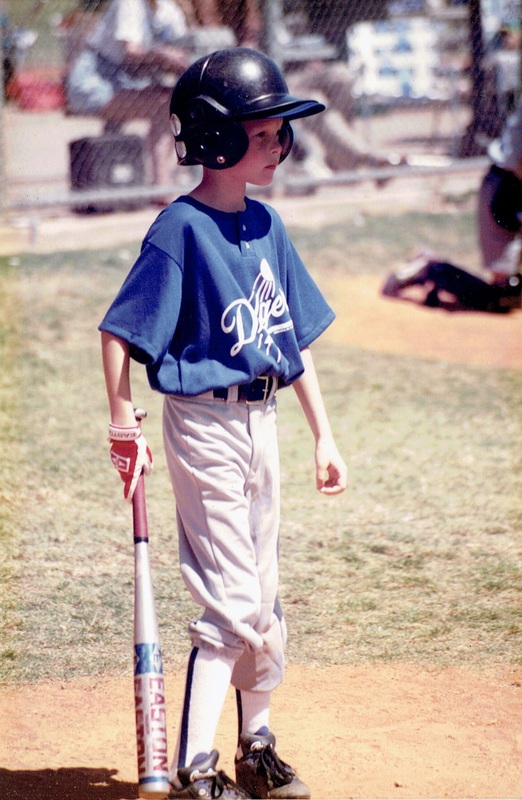
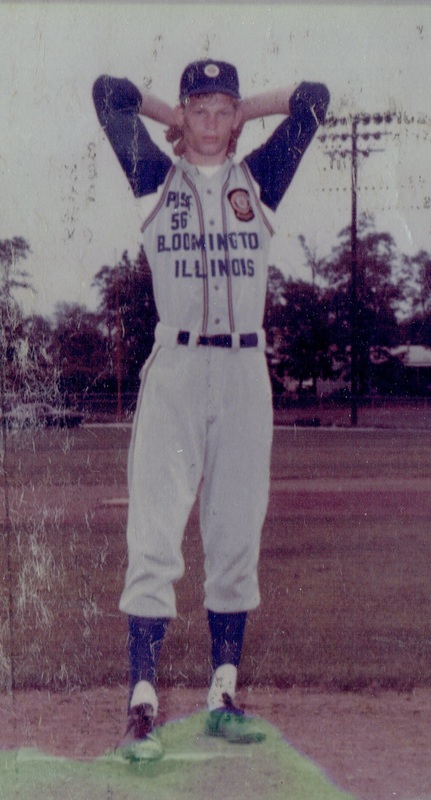
 RSS Feed
RSS Feed